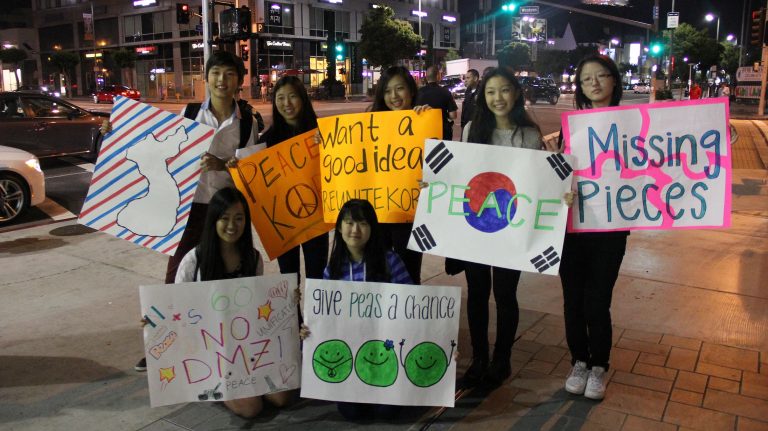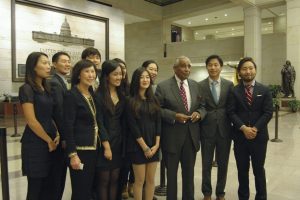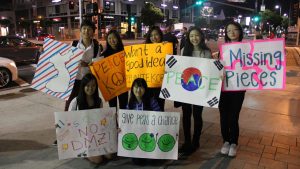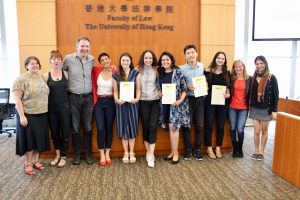Never Neglect Hidden Stories
Most people can talk at length about the Kardashians, offensive and defensive line-ups in the Super Bowl, and whether pineapple belongs on a pizza. Foreign policy is definitely not one of those topics. However, more than one thinks, foreign policy is intricately woven into our daily lives.
I grew up without much awareness in foreign policy, outside of the major developments like 9/11, Olympics, Obama’s presidential election, and an evil North Korea. I probably did not see foreign policy beyond the “Made in China” labels on my toys and clothes. While I can blame the Los Angeles Unified School District’s educational curriculum or my troubled home, I was indifferent to foreign policy as a youth living in Koreatown, Los Angeles. Can we blame a kid for not caring about what he cannot immediately see?
I had no idea that my mentality towards foreign policy would change from indifference to a passionate anger in high school. In the summer after my high school freshman year, I participated in the K.W. Lee Center for Leadership summer program, which gathers a group of adolescents to formulate and execute a community project. The program required us to meet with community members so that we can build a project that supports our communities.
That is how I became exposed to the divided families. These are Koreans who have been separated from their family members in North Korea due to the Korean War and the subsequent geopolitics. Around 100,000 of whom immigrated to America at one point. I met grandparents like Pyung Hi Yoo who had left his mother at the demilitarized zone (DMZ) believing that he would come back to get her in a few weeks but turned out to be an ongoing seventy years. Other grandparents shared how they got scammed by companies which said that they can help them see their family members, only to disappear after receiving the money.
These are common stories. And yet, while many of these grandparents have helplessly understood that they will not see their family members again, they do latch on the faint hope that they can visit their parents’ and family members’ graves to bid their farewell, which is an important Korean cultural tradition.
The way foreign policy negatively impacted my community in ways that I could not immediately see became real when I realized that these were the same grandpas and grandmas that I saw who were playing ping pong at the local YMCA or gossiping with their friends at cafes. Before this, I had no idea the pain that they held onto behind their smiles.
And whether or not their stories may have resonated with me because of my own family schisms, they did make an indelible mark on me by igniting a desire to spread awareness to them and push their reunifications into reality. I became angry with how geopolitics such as North Korea’s evil leaders or nuclear problem were used to outright dismiss these grandparents’ stories without consideration.
Because it should be nonpartisan. Noncontroversial. And a no-brainer. But the opposition that my team and I faced with gathering local and national political support with excuses along the lines, “we should help them but there are bigger things to take care of,” showed how foreign policy and politics directly obstructed the lives of my fellow community members by harming one of the most important things to everyone, family.
Even today, this issue remains unaddressed, and these grandparents are reaching the end of their lives. Their stories, particularly the unheard and unarchived ones, will forever be a stain on US foreign policy and identity. The failure to not provide these Korean Americans even the chance to see their family members, despite participating in the Korean War, drawing the 38th parallel, and imposing significant sanctions including humanitarian travel bans, is simply un-absolvable.
One silver lining for me with this issue, however, is that even though there were many who reacted in indifference, I met many grandparents who kept believing and many others who listened and fought for them. The dedication from individuals like Chahee Stanfield goes beyond inspiration.
Working in this cause propelled me into a career of public service. I wanted to build skills that could hold those in power and those who committed wrong accountable, to tackle foreign policy with human rights values, and to gain first-hand experience to see if the excuses that I heard were legitimate. This is why I worked as an investigator for the Human Rights Center at UC Berkeley School of Law and the United Nations, among other organizations and why I will continue my education through graduate schools.
It is also why I joined the Arms Control Association (ACA). I wanted to conduct analytical and advocacy work on the North Korean nuclear crisis, which was a common excuse against helping the divided families. I wanted not only to avoid being naïve or unreasonable but also to become clear eyed with strong analytical abilities that can help reform the status quo, if not at least be able to call out bs to weak or false justifications. And after several months at ACA, I believe that US foreign policy does not need to make a tradeoff between denuclearization of the Korean Peninsula and other peace-related issues. It can and should strive towards peace and make this world a safer and better place.
At the end of the day, I believe that as long as we listen to and empower those who are affected, marginalized, and neglected, we can shape foreign policy to do the right thing. Let me ask you, how did foreign policy affect you and your communities? And what are you going to do about it?
Sang-Min Kim is a Spring 2021 Scoville Fellow at the Arms Control Association.




